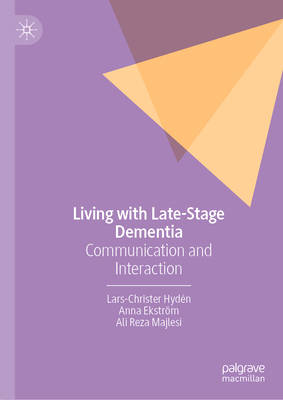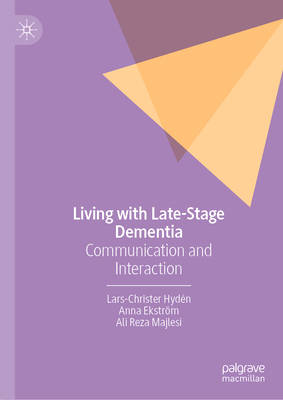
- Afhalen na 1 uur in een winkel met voorraad
- Gratis thuislevering in België
- Ruim aanbod met 7 miljoen producten
- Afhalen na 1 uur in een winkel met voorraad
- Gratis thuislevering in België
- Ruim aanbod met 7 miljoen producten
Living with Late-Stage Dementia
Communication, Support, and Interaction
Lars-Christer Hydén, Anna Ekström, Ali Reza MajlesiOmschrijving
This book investigates how people living with late-stage dementia can engage in communication and social interaction. Based on empirical research, it explores the remaining communicative resources of people living with cognitive impairment (e.g., intercorporeal interaction, bodily gestures, gaze), presenting the agency of the person with dementia as an integral part of their relations with others. The book provides a comprehensive theoretical framework for analyzing, describing, and understanding communication in late-stage dementia, and explores the use of video ethnography to record and analyze non-verbal, bodily interaction.
The authors skilfully bring together findings from their examinations of everyday interactions involving individuals living with late-stage dementia in nursing facilities, introducing the readers to the innovative theoretical and methodological approaches that undergird the fine-grained analyses at the heart of the book. The rich and nuanced case studies collected encompass embodied directives, habitual actions and objects, physical settings, assisted eating, and much more. An invaluable resource for graduate students and researchers at all levels in the fields of psychology, psychotherapy, social work, nursing, gerontology, and related disciplines, this volume makes an unparalleled contribution to current dementia research across the social sciences.
Specificaties
Betrokkenen
- Auteur(s):
- Uitgeverij:
Inhoud
- Aantal bladzijden:
- 298
- Taal:
- Engels
Eigenschappen
- Productcode (EAN):
- 9783031568695
- Verschijningsdatum:
- 23/05/2024
- Uitvoering:
- Hardcover
- Formaat:
- Genaaid
- Afmetingen:
- 148 mm x 210 mm
- Gewicht:
- 521 g

Alleen bij Standaard Boekhandel
Beoordelingen
We publiceren alleen reviews die voldoen aan de voorwaarden voor reviews. Bekijk onze voorwaarden voor reviews.












